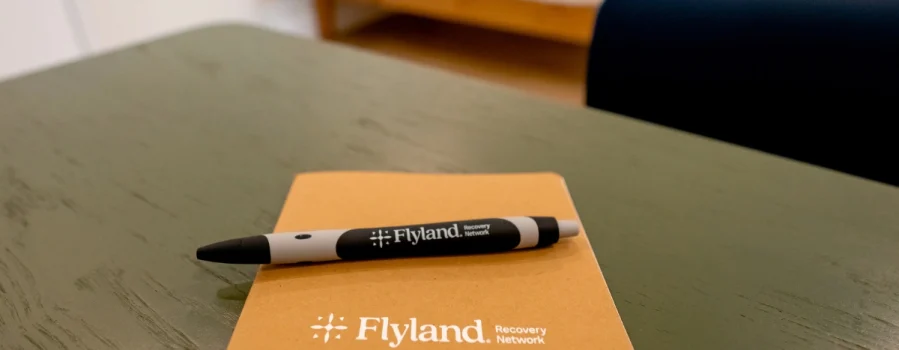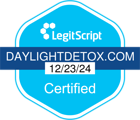Heroin addiction and abuse
People begin using heroin for their own personal reasons, but no one sets out with the explicit goal of falling victim to a heroin addiction and all that it entails: cravings, withdrawal symptoms, and more. Addiction occurs when someone continues to use a substance regardless of the harmful consequences that follow. If you are experiencing an addiction to heroin and/or other opioids, contact us for heroin addiction intervention. Call our heroin addiction hotline 24/7 at 1-888-307-1527.
Heroin abuse can have negative and potentially life-threatening consequences. Learn more about the risk and consequences of heroin addiction and get the help you need. Heroin addiction is not easily treated or cured without medical intervention.
What are the factors leading to heroin abuse?
Some of the common risk factors of heroin abuse include:
- Genetics and a family history of drug abuse
- A history of personal drug and/or alcohol abuse
- Untreated mental illnesses
- Traumatic experiences
- Social influences
It is possible to use heroin without developing an addiction, but continued use of the drug increases the risk of a serious and potentially life-destroying addiction.
Heroin addiction facts

Heroin is a highly addictive opioid that comes from the poppy plant. It can be smoked, snorted, and injected, and like other opioids, it works by binding to receptors in areas of the brain that control pain. The brain adapts to heroin and leaves users wanting more of it.
Heroin overdose is unfortunately common. Use of the opioid can quickly lead to addiction, which creates a strong physical dependence. The unpleasant withdrawal symptoms that follow cessation of use make quitting a difficult endeavor. Relapse is all but inevitable without proper medical and clinical intervention, along with continued recovery efforts. (e.g., support groups).
With proper medical treatment, it is possible to overcome heroin and opioid addiction.
How to get heroin addiction help
Besides the many problems and difficulties that arise out of heroin addiction, heroin overdoses are potentially life-threatening. Heroin withdrawal symptoms are extremely unpleasant and some who are addicted to the drug might think recovery is unattainable. If you are addicted to heroin, please realize that you are not alone.
The first step toward recovery can be intimidating, but we are here to provide heroin addiction help as you begin your journey toward a better life. Contact us 24/7 at our addiction hotline: 1-888-307-1527. We can help change your life so that you can be free of your heroin addiction.
With proper addiction intervention and care, you can safely recover from your heroin addiction.
How can Daylight Recovery Center help with heroin addiction?
Daylight Recovery Center has proven that drug addiction treatment thrives when expertise meets compassion, quick response, and solid guiding principles. Our approach combines these elements to offer effective, evidence-based care.
We use proven drug abuse treatments that have stood the test of time. We believe that for addiction treatment to work, patients need a clean, structured environment. At Daylight Recovery Center, you’ll find privacy and care, along with group therapy, counseling, and a team of qualified professionals guiding your recovery journey. We also offer integrative services like meditation, massage therapy, auriculotherapy, and nutrition education to support your healing.
Substance addiction occurs when someone keeps using a drug despite its harmful effects. But there’s hope – you can overcome heroin addiction. It may seem tough, but with an effective rehabilitation plan, your body and brain can heal.
Withdrawal and detox are part of recovery. You’ll face unpleasant symptoms, but our dedicated staff will keep you as safe and comfortable as possible. Many withdrawal symptoms last only days, though some, like anxiety, may linger. It can be disheartening, but with proper care, you can achieve lasting freedom from heroin addiction.
A long-term aftercare plan is vital for ongoing recovery. Support groups can help you move forward and stay drug-free. Your journey to recovery starts with a personalized plan at a licensed, qualified center. Let Daylight Recovery Center be your stepping stone to a better life today.
Relapse prevention
Heroin addiction is serious but treatable. If you do not follow your treatment plan, your chances of relapse increase.
Some of the most popular relapse prevention strategies include:
- Exercising
- Avoiding people, places and things that trigger cravings
- Avoiding activities that threaten your sobriety
- Narcotics Anonymous meetings
- Support groups
- Lifestyle changes
- Therapy sessions
- Faith
What insurance do I need to attend Daylight for addiction treatment?
The Mental Health Parity and Addiction Equity Act (MHPAEA) of 2008 ensures insurance companies cover mental health and substance use treatments equally to other medical conditions. For those struggling with heroin addiction, having insurance can greatly help with the often high costs of qualified treatment centers.
We encourage you to contact your health insurance provider to learn what addiction treatments and rehab centers they cover. At Daylight Recovery Center, we offer free, confidential insurance verification for drug treatment plans. Our caring team can help you understand your insurance benefits for heroin addiction treatment. Call us at 1-888-307-1527 for assistance.
If you don’t have insurance, nonprofit drug rehab options funded by grants and donations may be able to help you.
For those looking to get insurance for addiction treatment, we recommend first checking with the treatment facility about accepted insurance and then enrolling in an appropriate plan. The compassionate experts at Daylight Recovery Center are here to guide you through this process. Reach out to us at 1-888-307-1527, and we’ll help you find a plan that covers your heroin addiction treatment.
We understand the challenges you face and are committed to supporting you on your path to recovery. You’re not alone in this journey, and we’re here to help every step of the way.
Looking for a barbiturate addiction treatment center?
We’ve provided barbiturate addiction treatment to people around the globe and in all 50 states.
Get confidential help 24/7.
If you or a loved one are suffering with drug abuse or alcohol addiction, reach out to Flyland Recovery Network for addiction help.

Frequently Asked Questions
What is heroin withdrawal?
Heroin withdrawal is what happens when someone who is physiologically dependent on heroin ceases taking the drug. Because of repeated use over time, a person who is dependent on heroin needs the opioid in order to feel normal. Without it, unpleasant withdrawal symptoms inevitably occur. They range in severity on a case by case basis and can include nausea, muscle spasms, abdominal pain, vomiting, diarrhea, anxiety, depression, hallucinations, and more.
Call our 24/7 heroin addiction hotline today: 1-888-307-1527.
How long does heroin withdrawal last?
Heroin withdrawal symptoms usually start within 6 to 12 hours since the last dose was taken and can last up to 10 days. A peak occurs within the middle of the withdrawal period’s duration. Because everyone is different and because the severity of heroin withdrawal depends on the nature and extent of a person’s dependence on the drug, Daylight Recovery Center provides highly-customized care to patients.
Call our 24/7 heroin addiction hotline today: 1-888-307-1527.
What is the difference between heroin addiction and dependence?
Substance addiction is marked by a compulsive and continued use of a substance despite the negative consequences that follow. It is closely related to drug dependence, but distinct from it. Heroin dependence is a physiological dependence on the illicit opioid. It means that a person must keep using heroin in order to feel normal and avoid the unpleasant withdrawal symptoms that will otherwise follow a few hours after the last dose was taken.


